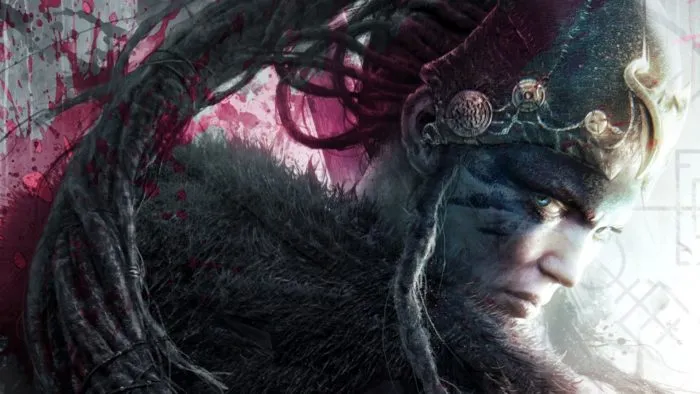It Comes From the Talented Team at Ninja Theory

Ninja Theory has a history of developing quality action games, and Hellblade sticks to the studio’s signature style. Their main hallmark titles include Heavenly Sword, Enslaved: Odyssey to the West, and DmC: Devil May Cry. Hellblade has a key difference, however, as it’s independently developed by the studio without a big publisher.
This means that Ninja Theory had full creative freedom over its story and gameplay. In this case, that’s a good thing. Ninja Theory’s pedigree shines through with their newest title especially in terms of combat, which is fast and fluid. Combat isn’t overly complicated, but Hellblade pulls the camera in close, and gives you a wealth of light and heavy combos to unleash. The team clearly used what they learned with the likes of Enslaved and DmC to provide a combat experience that feels fluid. If you’ve found yourself enjoying Ninja Theory games in the past, Hellblade should be right up your alley.
A Gorgeous Game, Even Better on Xbox One X or PS4 Pro

Hellblade is a drop-dead gorgeous game that uses its mythological setting to full its full advantage. Environments look absolutely gorgeous, and the facial animation tech Ninja Theory used is definitely impressive. The environments of the game are striking and varied, from goopy swamps to dense forests lit aflame. The environments often represent the twisted psyche of Senua herself, and can be fittingly horrifying.
Even better is the fact that Hellblade has support on PS4 Pro, and will have support on Xbox One X right out of the gate. The game’s functionality on these systems is interesting and gives you a few options. Hellblade runs at 30fps, and the upgraded console functionality is all based around hitting that frame rate. When playing on resolution mode for PS4 Pro, the game locks its frame rate at 30 and dynamically adjusts its resolution on the fly to stay at that, adjusting between the 2560x1440p target resolution and 1920x1080p. At the same time you can switch to a 60hz or frame rate mode that bumps it up to 60fps. Doing this makes the game lock at 60fps and dynamically adjust its frame rate again, this time staying very close to 1080p. These options are the same on Xbox One X, letting you choose between resolution and frame rate. If you happen to own one of the upgraded consoles, Hellblade makes full use of their capabilities.
A Sincere Portrayal of Mental Illness

At its core Hellblade is a story about mental illness, more specifically how psychosis affects young Senua. Her journey starts as she makes her way to Helheim to retrieve the soul of her dead lover, Dillion. Things start out normally enough, but soon take a dark and twisted turn.
As Senua travels toward Helheim her mind begins to fracture more and more, making you question exactly what’s real and what isn’t. Much of Hellblade’s story can be left open to interpretation, but that’s intentional. Senua’s mental illness is the primary thing that the entire game’s story revolves around, and it’s more of a character study than anything. Bright lights disorient you, Senua constantly talks to herself, voices chime in out of the blue, and more. Ninja Theory constantly consulted people that suffer from various types of psychoses as well as Paul Fletcher, a neuroscience professor in Cambridge’s Clare College. Even if Hellblade doesn’t get everything right, it’s one of the most sincere stories you can find about mental illness in video games.
A Brilliant Use of Audio

Going hand in hand with Hellblades portrayal of mental illness is its brilliant use of audio. Auditory hallucinations affect many of those that suffer from psychosis, and that’s exactly what happens to Senua. Soon after the game begins, the various voices inside Senua’s head start constantly chattering away. These voices often play with your expectations or even assist in combat. They’ll alert you if there’s an enemy behind you about to strike, or try and trick you into thinking something is there when it isn’t.
It makes sense that these voices would sometimes be helpful and benevolent, while at other times hateful and tricky. The voices stick with you through the majority of the game, and really flesh out Senua as a character as well as the illness she suffers from. Using headphones is the ideal way to play Hellblade, and it’s an experience unlike anything else in video games.
Proceeds of the Xbox One Version Might Go to Charity

If you need any more reasons to give Hellblade a try, the first week sales of the game on Xbox One could potentially be donated to Mental Health America. I say potentially because it all depends on sales. Ninja Theory announced that if they hit 50,000 week one sales by April 18, they’ll donate $25, ooo to the organization. If they can hit 100,000 first week sales, they’ll donate $50, ooo.
Considering Hellblade is so dedicated to portraying mental illness, it’s a great cause for money to go to. Now you can buy a great game, and contribute toward something even bigger.






Published: Apr 11, 2018 08:48 am